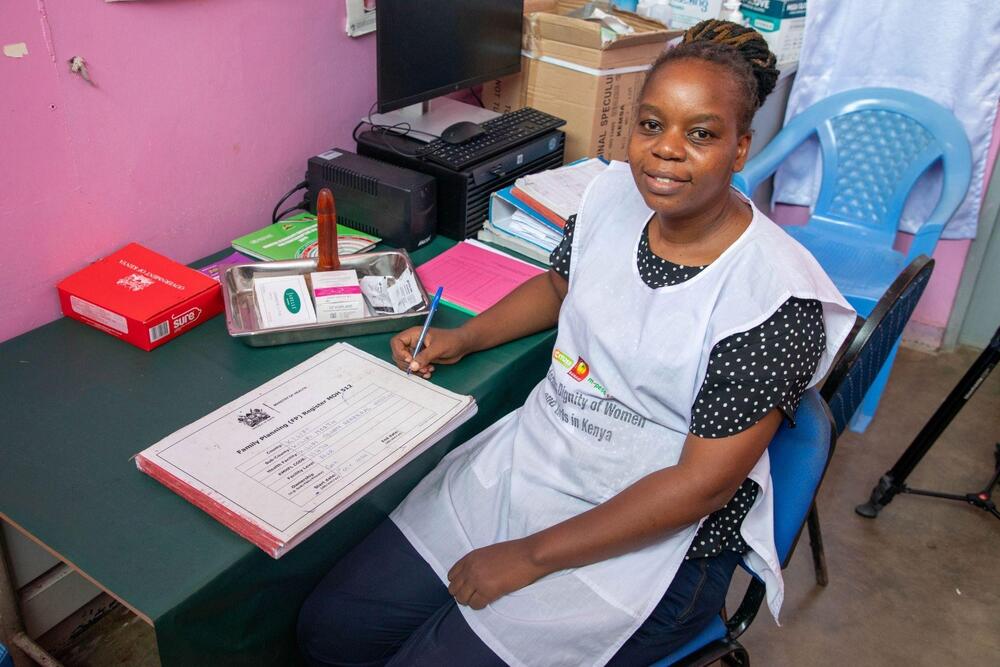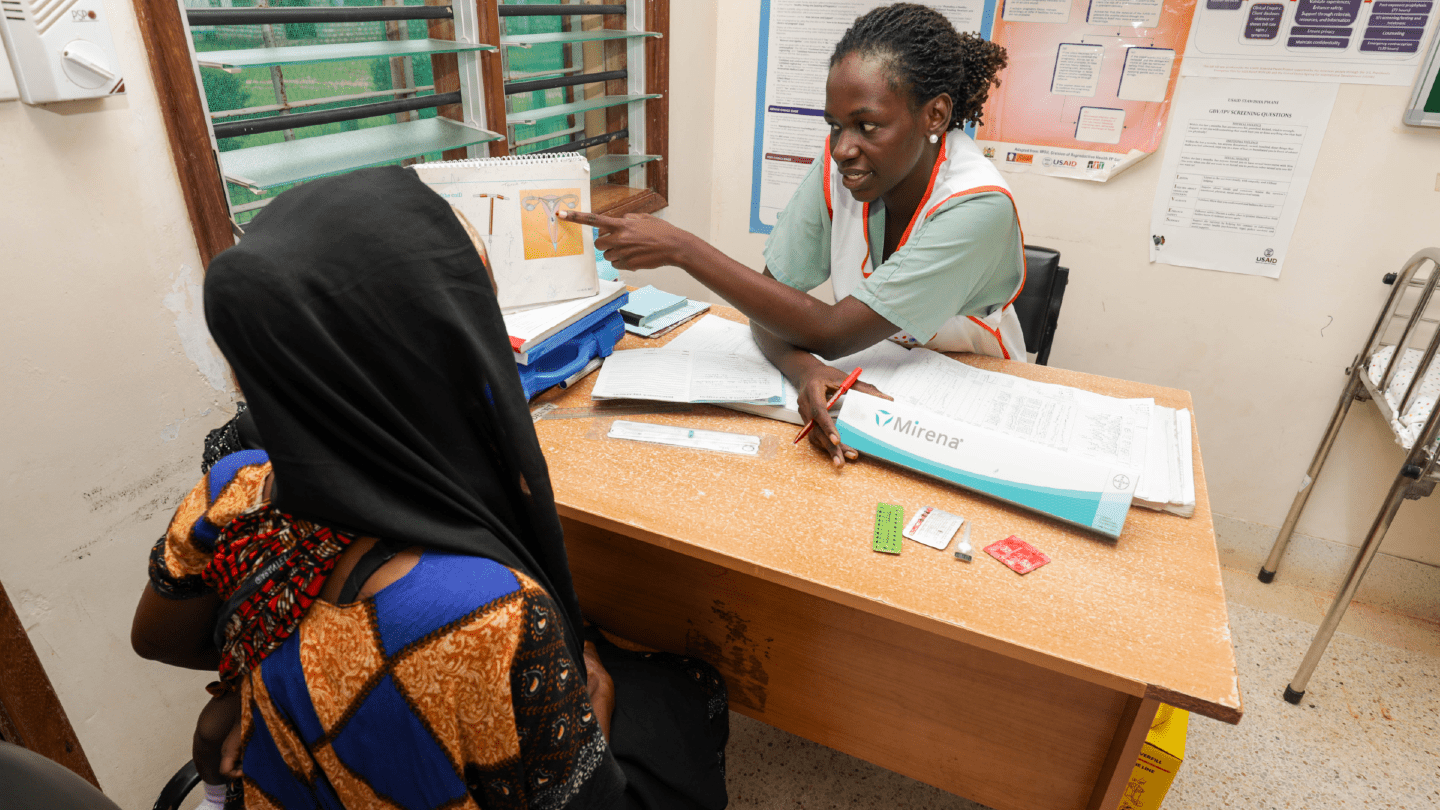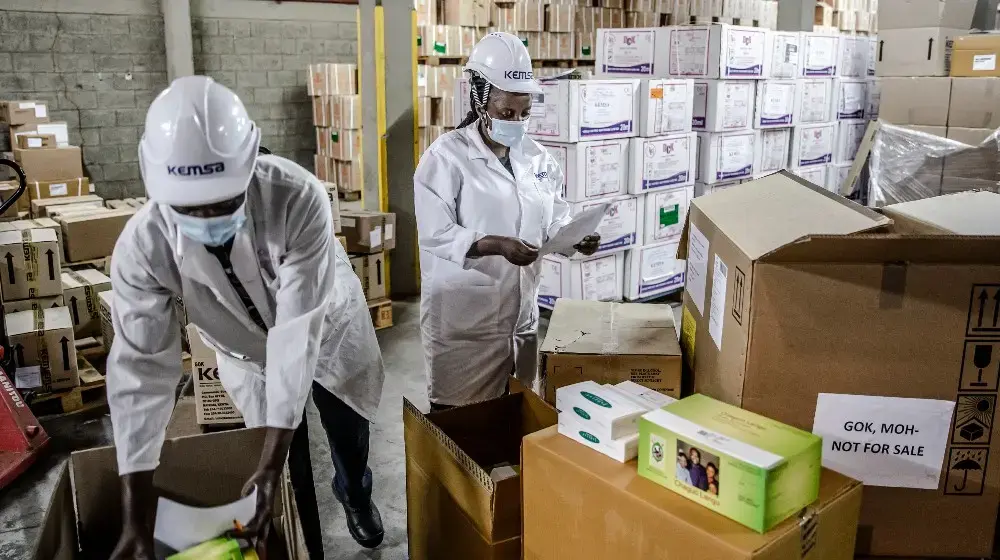In Kenya’s healthcare system, nurses are often the backbone of service delivery, especially in primary healthcare settings. In Kilifi County, where reproductive health challenges such as teenage pregnancies and the unmet need for contraception persist, nurses play a pivotal role in administering family planning methods.
Nurse Mary Mwakhugu has worked at the Kilifi County Referral Hospital family planning clinic for the last eight years. Located in the heart of Kilifi town, the health facility serves as the main hospital for residents of the county. “ On a regular day, we serve up to 60 women with family planning methods ranging from short-term to long-term contraceptives,” says Nurse Mwakhugu.

With every client served, Nurse Mwakhungu maintains detailed records of commodity usage which she diligently logs in the daily activity register for contraceptives. “We just received the latest version of the register from the Ministry of Health. It’s more comprehensive and allows us to track new methods such as subcutaneous DMPA and hormonal intrauterine devices (IUDs), which have recently become available for free at public health facilities,” she says.
In addition to the daily activity register, nurses at the Kilifi County Referral hospitals have been issued stock control cards, also known as bin cards, where they systematically record and track the movement of family planning supplies.
“The family planning clinic receives a variety of contraceptive methods from the pharmacy store, which are distributed to different service delivery points including the mother and child clinic, the HIV clinic, as well as the maternity ward, where we offer post-partum family planning,” explains Nurse Mwakhungu.
During a family planning supply chain monitoring visit conducted by UNFPA and stakeholders, Nurse Mukhungu demonstrated how nurses at the family planning clinic use the bin cards to document key data points, such as the quantities of contraceptives received from the store, quantities issued, and the running balance. Data from the family planning clinic is aggregated with that from other service delivery points and the pharmacy store to facilitate the timely reordering and procurement of family planning supplies.
“The availability of bin cards at the family planning service delivery point is a unique and good practice as it empowers nurses to do regular stock-taking and predict demand patterns to prevent shortages,” said Makueni County sub-county pharmacist Dr. Charles Mulwa.
“Accurate record-keeping is at the heart of Kenya’s family planning commodity security,” says Charity Koronya, UNFPA Family Planning and Reproductive Health Commodity Security Specialist Specialist “The efforts of nurses in stock taking and record-keeping have contributed to improvements in service delivery, ensuring that women and families have reliable access to contraceptives, which in turn, supports broader goals such as reducing maternal mortality and empowering women to make informed reproductive choices.”





